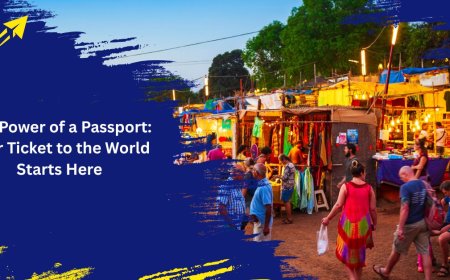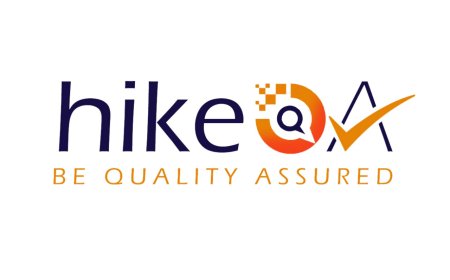Immigrants in West Virginia: The Changing Face of West Virginia Immigration
West Virginia, a state known for its scenic beauty and coal-mining history, is quietly undergoing a transformation. Though it has traditionally had a low immigrant population, recent trends show that immigrants in West Virginia are making a growing and meaningful impact on the states economy, communities, and workforce.
Who Are the Immigrants in West Virginia?
According to recent U.S. Census and American Community Survey data, immigrants in West Virginia make up about 1.5% of the states total population. While that number is modest compared to national levels, the growth in immigrant communities is noticeableparticularly in areas like Morgantown, Charleston, Huntington, and Martinsburg.
? Countries of Origin
Immigrants in the Mountain State come from diverse backgrounds, with common countries of origin including:
-
Mexico
-
India
-
China
-
Philippines
-
El Salvador
-
Ukraine
-
Ghana
These individuals include skilled professionals, international students, refugees, and family-based immigrants.
Why Immigrants Are Moving to West Virginia
The rise in West Virginia immigration is driven by a variety of push and pull factors. Immigrants are drawn to the state for reasons such as:
? Lower Cost of Living
Affordable housing and living costs make it easier for immigrants to build stable lives, especially compared to large urban centers like New York or Los Angeles.
? Job Opportunities
West Virginias workforce has been shrinking due to population decline. Immigrants are helping fill critical labor shortages in industries such as:
-
Healthcare
-
Construction
-
Manufacturing
-
Agriculture
-
Education
? Educational Institutions
Universities such as West Virginia University (WVU) and Marshall University attract international students who later transition into workers or permanent residents through visa programs.
? Small, Welcoming Communities
Many immigrants report feeling safer and more welcomed in West Virginias smaller cities and towns, where people are more community-focused and supportive.
Challenges Immigrants Face in West Virginia
While the outlook for immigrants in West Virginia is improving, challenges remain. These include:
?? Language Barriers
Limited English proficiency makes it difficult for some immigrants to access public services, healthcare, or education. ESL programs are not always widely available, especially in rural counties.
? Legal Navigation
Navigating West Virginia immigration policieslike visa applications, green cards, or naturalizationrequires legal guidance. Unfortunately, immigration attorneys and nonprofit legal aid resources are limited in number across the state.
? Social Isolation
Due to the small size of the immigrant population, cultural or language-specific support systems may be lacking, making adjustment more difficult.
?? Healthcare Access
Some immigrantsespecially undocumented individualsstruggle to access affordable healthcare or insurance coverage.
Economic & Social Contributions of Immigrants in West Virginia
Despite being a small demographic, the impact of immigrants in West Virginia is far-reaching.
? Boosting the Labor Force
Immigrants often fill jobs in sectors with significant worker shortages, helping businesses remain open and competitive.
? Creating Small Businesses
Many immigrants open restaurants, convenience stores, cleaning services, and tech startups, generating tax revenue and employment opportunities for others.
? Supporting the Healthcare System
Foreign-born doctors, nurses, and caregivers work in hospitals and clinics across the state, including hard-to-staff rural areas.
? Enriching Education
International students bring cultural diversity to campuses and frequently contribute to research, technology, and local economies.
? Enhancing Cultural Diversity
From food and music to festivals and faith communities, immigrants are helping West Virginia become more diverse and globally connected.
West Virginia Immigration Services and Support
As West Virginia immigration increases, various organizations have stepped up to provide legal help, education, and social support.
?? Legal Aid & Immigration Attorneys
Though limited, immigration legal services are available in Charleston, Morgantown, and a few other cities. Services include:
-
Visa and green card applications
-
Family reunification cases
-
Deportation defense
-
DACA and TPS assistance
-
Naturalization and citizenship applications
Top Providers:
-
Catholic Charities West Virginia
-
Appalachian Immigration Advocacy Center
-
Legal Aid of West Virginia (referrals only)
? ESL and Education Programs
Public schools in immigrant-heavy areas offer ESL support. Adult ESL and citizenship classes are available through:
-
Public libraries
-
Community centers
-
Local colleges
-
Faith-based organizations
? Healthcare Access
Federally Qualified Health Centers (FQHCs) provide discounted care regardless of immigration status. Some clinics offer interpretation services as well.
? Community Outreach
Volunteer groups, local churches, and multicultural organizations are helping immigrants adjust through:
-
Cultural festivals
-
Mentorship programs
-
Food drives
-
Language exchange sessions
Real Immigrant Stories from West Virginia
???? Dr. Alina from Ukraine
Alina moved to West Virginia as a medical graduate. With legal support and community backing, she now works as a doctor in a rural health clinic serving underserved populations.
??? Jorge from El Salvador
Jorge opened a Latin-American restaurant in Charleston after years of working in kitchens. Today, he employs seven people and gives back through local food drives.
? Raj from India
Raj came as an international student to WVU. After graduation, he got an H-1B visa and now works as an engineer in a growing tech firm based in Morgantown.
These examples showcase how West Virginia immigration is driving real transformation.
How West Virginia Can Improve Immigration Support
To make the state even more welcoming for newcomers, community leaders and policymakers should:
-
Expand ESL and translation services statewide
-
Increase access to affordable legal aid
-
Encourage local businesses to hire immigrants
-
Promote inclusive policies in education and healthcare
-
Fund refugee resettlement and family reunification programs









































